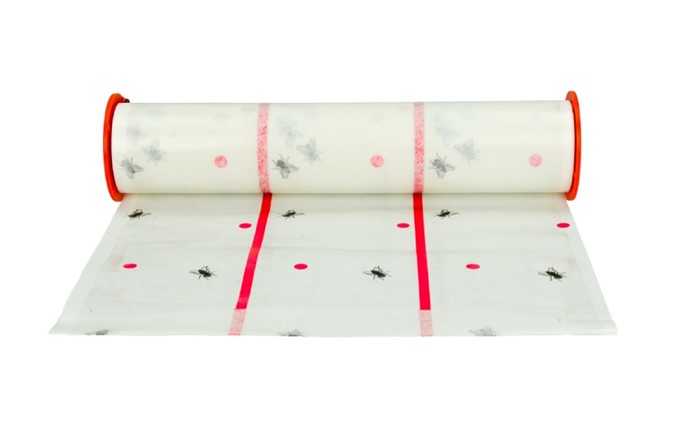Jim Rogers - RBC: "No one is happy about the collapse of the ruble"
Jim Rogers is an American investor. Together with George Soros in the 1970s, he founded the Quantum Fund, which brought investors 4200% in ten years. In 1980, he left Wall Street and became interested in travel. Rogers invests in Russian assets, including shares in PhosAgro, AFK Sistema, Aeroflot, Moscow Exchange, as well as ruble government bonds.
We asked Rogers about what he thinks about the closing of the stock section of the Moscow Exchange, the prospects for the Russian economy and new opportunities that may appear after the resumption of trading in shares.
2 Photo: Shutterstock “Closing markets is wrong”On February 24, the Mosbirzha and RTS indices fell at the moment by 40-45% - this collapse was a record for the Russian market. On February 28, trading in Russian shares was stopped. More than three weeks later, on March 24, transactions resumed: at the end of the day, the growth of the Moscow Exchange index amounted to 4.37% (2578.51 points), reaching 11.76% (2761.17 points) during the session. Experts explained such dynamics mainly by technical factors, emphasizing the absence of any fundamental component. The very next day, February 25, the market almost completely lost the growth achieved the day before.
“Closing markets, in my opinion, is never the right decision. This has happened many times in history in many countries. But for me, I believe that the market should remain open. Yes, some people will panic, but that's what markets are for, so that people can learn the value of what they have,” says Rogers.
When the markets are open, some have the opportunity to sell assets while others get a chance to buy. And when the markets are closed, nothing can happen, the investor noted.
3 Photo: Shutterstock “Russia will eventually survive everything”The situation with Ukraine had a bad effect on the Russian economy. “Military actions have never benefited any country and economy, so Russian companies and the economy are suffering greatly. The currency collapsed,” the investor said.
According to Rogers, no one is happy about the collapse of the Russian ruble, except perhaps for national exporters. “I am not happy because of what happened to the ruble exchange rate. I don't think anyone is experiencing. Not in RUSSIA, not anywhere else. Maybe some Russian exporters are glad that the ruble has collapsed, but it is very difficult for them to do business anywhere in the world. Even despite the fact that now their products are cheaper, ”he admitted.
“I have OFZs - I don’t know if they will pay a coupon on them when the time comes. But if they pay in rubles, I'll take it in rubles. This is what I own, I will get rubles anyway, ”Rogers said.
“Russia has been around for a long time. I believe that Russia will eventually survive all this, ”the investor summed up. He recalled how he first came to the USSR in 1966, and it was "terrible", but then over the years he changed his attitude towards the country.
4 Photo: VCG via Getty Images Investment during the warRogers noted that one of the lessons he learned is that if you invest during war, civil war, and other similar conflicts, things usually get better after a few years. According to Rogers, history shows that neither friends nor enemies are permanent. He cited as an example the United States , which fought with many countries, but later some of them became friends for Washington.
“History shows that buying after the war is usually a good thing,” he says.
The investor added that he prefers that people have a dialogue and try to find a way to improve the situation and move forward. “And if opportunities come up in Russia later, I hope I’m smart enough to take advantage of them,” Rogers said.
He also believes that the resolution of the situation in Ukraine will negatively affect the dynamics of commodities - prices for oil , gold, silver will fall, but stock quotes will rise: “Judging by what is happening on the market, investors are laying down just such a scenario. This is what the market says, but it can be wrong. However, if everything is resolved, raw materials will become cheaper.”
5 Photo: Shutterstock Betting on commoditiesIn mid-December, Rogers told RBC Investments that he kept gold and silver in his portfolio. Answering the question whether he plans to increase his positions in precious metals, the investor replied that he definitely did not in gold, because at that time it did not correct as much as silver. At the same time, the investor recommended buying an ETF for agriculture.
In both cases, Jim Rogers was right. First, the threat of a food crisis looms over the world. Secondly, since December 15, the price of gold has increased by almost 10% - from $1,776 to $1,955 per troy ounce as of March 25, and at the maximum on March 8, the increase reached 16%. The price of silver rose even more - by 15.5% from $22.04 to $25.42 per ounce, at a maximum increase of 22%.
Now Rogers noted that when silver gets cheaper, he plans to buy more silver in his portfolio on a drawdown: “I bought my first silver 50 or 60 years ago, I never sold it and I continue to buy silver.” This may happen against the backdrop of the completion of the special operation in Ukraine. But regardless of this situation, inflation will be high in the next few years - this will benefit commodities. In addition to silver, cotton and corn will rise in price.
In February, annual inflation in the US accelerated to 7.9%. Prices are expected to continue rising on the back of sharply soaring quotations for gas, oil and other commodities.
6 Photo: Shutterstock Crisis is an opportunityIt is known that Jim Rogers holds Russian shares (AFK Sistema, Aeroflot, Phosagro), as well as ruble bonds of the federal loan. When asked how he sees the future of these investments, the investor recalled the ancient Asian wisdom "crisis is an opportunity."
Speaking about specific shares, he noted that when trading opens, papers such as Aeroflot will be very cheap. After the restart of the stock section, following the results of two trading sessions on March 24 and 25, the shares of the air carrier fell by more than 30%, to ₽25.1.
“I don't think that the people of Russia will take boats to Tokyo. I don't think the Russians will go boating and taking trains to London. I think Aeroflot will fly again. If so, then this could be a good opportunity. It depends on what happens. Some companies like this one are likely to survive, and they may have opportunities when hostilities stop,” Rogers said.
Finally, Rogers traditionally reminded that it is better for investors to select assets on their own and buy only what they really understand.
Follow the news of companies in our group "Vkontakte"



























































